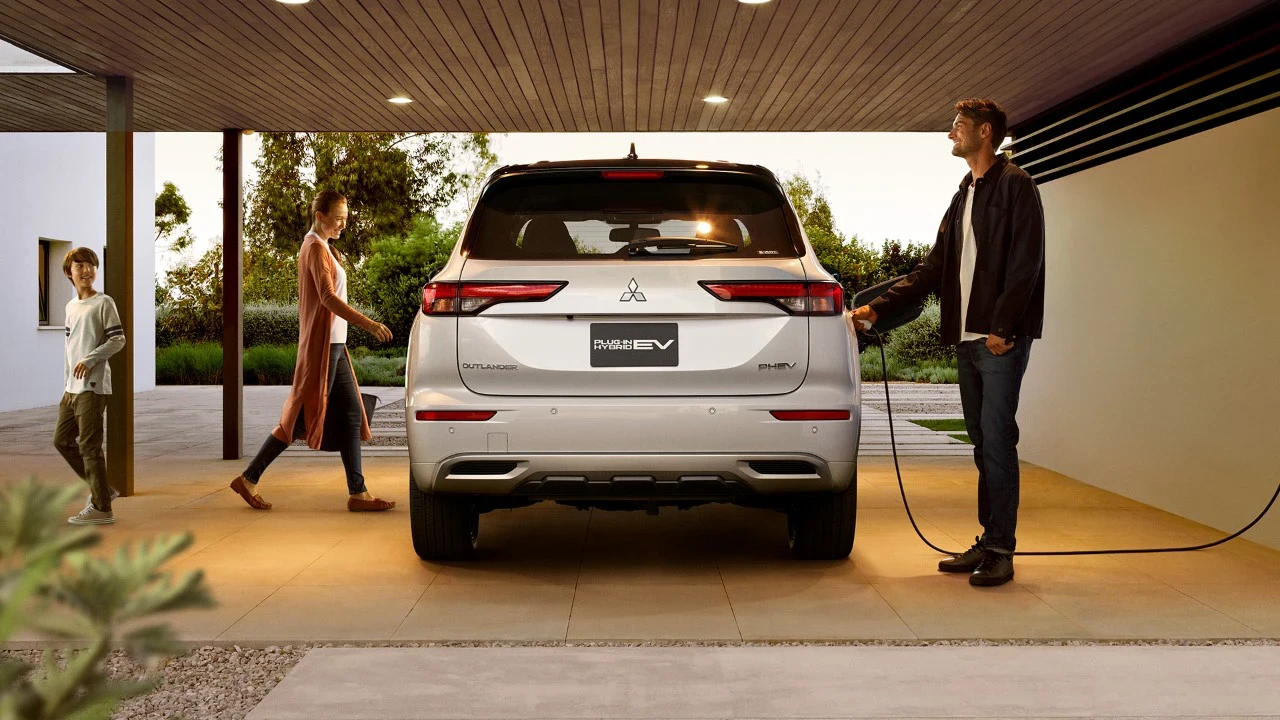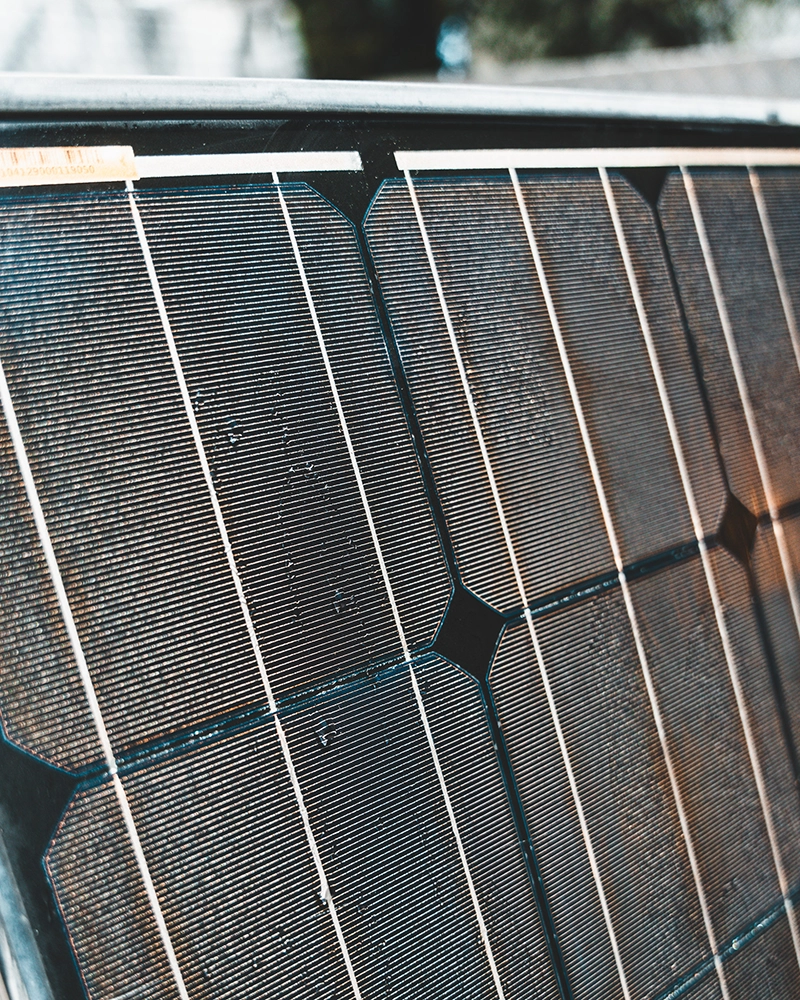
How to Clean Dirty Solar Panels DIY vs. Professional?⚡NSW
Posted 29 Jan
Posted 29 Jan
Like anything that is well-maintained, solar panels run optimally when they’re looked after. Depending on
where your property is located, solar panels gather dirt which negatively affect the production rate of electricity that your solar panels
generate over time.
Other elements such as leaves, bird droppings, and moss can all contribute to a reduction in solar panel production, so keeping the panels clean is essential to getting the most out of your system and investment.
To determine your solar cleaning rate, it will really depend on where you are located and your surroundings that can impact the cleanliness of your panels.
If you live in a dusty area, the wind can kick the dust up onto the solar panels and can create a layer on the panel surface over time, reducing the production of the solar panels.
If you’re close or near overhanging trees, it can indicate that your panels may be covered in leaves or other debris that need cleaning.
It is good practice to inspect your panels every 6 months, with a yearly clean on average.

If you want to clean your dirty solar panels yourself, there are elements you need to consider before getting on the roof. We really recommend getting a professional to clean your panels.
Identify your environment to adjust your cleaning schedule and for the tools you will need to clean the panels.
If you live in a high-moisture area, moss can develop on the panels which will need more attention.
It is important that when cleaning your own panels, that you exercise all safety measures.
It is safer to clean your dirty panels from the ground with a long-handled tool – we do not recommend getting on the roof as it is dangerous.
If you live in a place that rains quite a bit, your cleaning intervals will be further apart as the rain will naturally clean general dirt off your panels.
If you're in an area where it rarely rains, you may have to clean more regularly.
Lucky for you, you’ll only need standard cleaning equipment like a sponge or a soft-bristled brush that scrubs the panels without scratching the glass, as well as a hose to rinse off the soap/dirty water for a deep clean.
Simply spray the dirty solar panels with soap and lightly scrub to remove the dirt using the long scrubber. Removing moss from the solar panels may take longer.
Once scrubbed, simply rinse and you’re done! You may need to repeat depending on how dirty the panels are.
Wear eye protection to protect your eyes from soap, dust, or any other debris from cleaning. Use water-based or solar cleaner specific soap products.
Exercise care for yourself and those around you.


If there is more than just dirt on your solar panels, consider getting a professional cleaner to do it for you. By hiring a professional cleaner to clean your solar panels, they can safely do it with specific cleaning gear.
You should hire a professional solar cleaner when you have tall trees close to your house, i your panels are too dirty to
clean yourself, can't access the panels safely like a double storey home..
In addition to visually checking the panel condition once the clean has been completed, you can also check your solar app and see the production level differences in your solar generation.
A dirty system will produce less, so by visualising your generation, you can see how much you've improved your production.
When attempting to clean solar panels yourself, there are a few things to avoid ensuring minimal risk of injury and damage the solar panels. We recommend hiring a professional solar cleaner to maintain your panels if they are not easily accessible from the ground.
Avoid using harsh detergents that consist of strong chemicals that may result in corrosion of panels, resulting in damage.
Use either cleaner that is designed for solar panels, or a water-based cleaner soap and rinse with water.
Only use a pressure washer when spraying from a distance. Spraying closely will result in damage to the panel waterproofing and
potentially negatively impact its production.
Don't use harsh brushes or anything with ‘teeth’ (brooms with hard bristles, anything that is not soft etc.).
You may scratch the surface of the panels, lowering its efficiency, defeating the whole purpose of cleaning your panels in the first place.
We do not recommend attempting to clean your solar panels from the roof or any high places, as it is unsafe and could cause serious injury, and in some cases, death.
Contact expert solar panel cleaners today.
As more homes and businesses add solar battery storage to their property, it is becoming increasingly important to understand how to maintain and clean your energy storage modules.
Performance-reduced battery storage can negatively impact your investment, and slow down and even prevent return-on-investment. Ensuring your battery is clean and maintained can maximise longevity and safety.
In the installation, your battery installer will have setup a solar performance analyser, where you can see if your system is working at its full potential. From here you can identify errors, when they began, and its duration.
Manufacturers may provide updates for your battery, so regularly check to see if there are any available updates to install for your battery. These could have small fixes that allow for more efficiency or removal of any glitches they may be causing problems.


Maintain a well-ventilated area around the battery to ensure the energy storage system remains cool and can combat the harsh Australian heat on those summer days.
This also applies to your solar inverter, which also needs ventilation to keep cool whilst converting your energy.
An easy way to maintain your battery is to simply have a look over it. You don’t need to be a technician to see if the battery and wiring has any signs of wear or malfunction. With the combination of your batteries statistics analysis, and physical check-ups you will know if there is anything wrong.
By ensuring your solar and battery are working to their fullest capacity, you can be assured your investment will be fulfilled in the
desired expected timeframe. Whilst both solar and battery systems are designed with longevity in mind, it is important to confirm your
system is working at its fullest within the years of its expected lifetime to ensure the maximum returns and benefits.
If your solar or battery system is having issues, we have a local team that can come out and provide solar health checks to ensure your system is working properly. Please note that we only provide this service in the Newcastle, Maitland, and Hunter region.
Leave a Comment